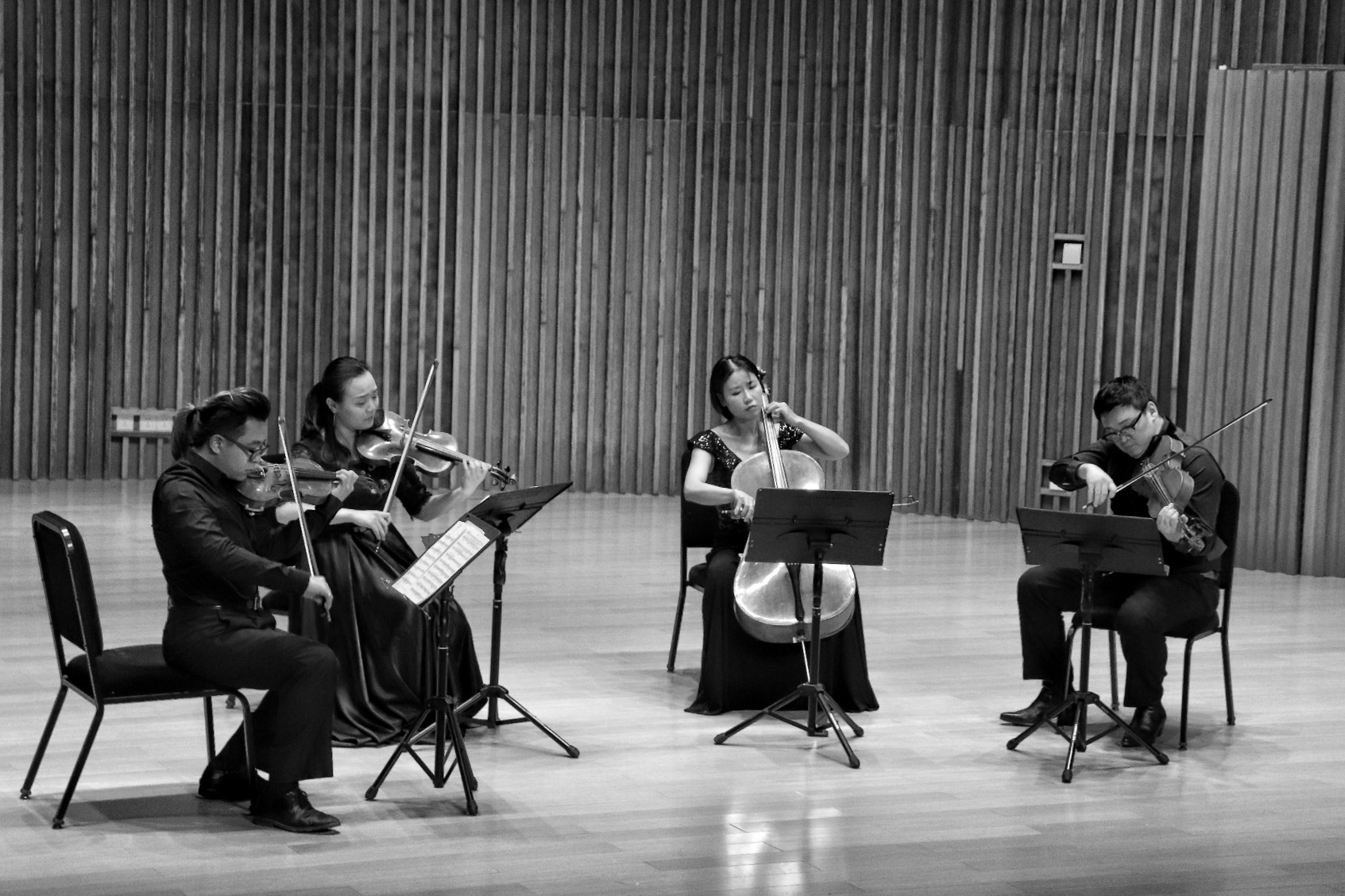
Music, charity and spicy food: the life of a musician in Chongqing!
In this edition of Chongqing Stories we decided to interview Ray (Hao XiaoRui), a well – known violinist in Chongqing music scene.
Hi Ray, we are very glad to meet you! First of all, could you introduce yourself to our readers?
 I’m currently Associate Professor in the Conservatory of Music at the Southwest University of Chongqing and I’m part of a string quartet. After studying at the Sichuan Conservatory of Music in Chongqing, in 2001 I went to the UK for a summer school. During that summer I realized that my horizons had to be amplified and that I had to study abroad to do it. One of my professors was originally from Germany, so he suggested me to go to study at the National Hamburg Conservatory of Music and thanks to his help I managed to get in. In Hamburg I studied from the Bachelor Degree to the Ph.D., where I received a Doctorate in soloists, and I worked in an orchestra. It was in those years that the passion for teaching begun, when I started to teach violin to kids to earn some money.
I’m currently Associate Professor in the Conservatory of Music at the Southwest University of Chongqing and I’m part of a string quartet. After studying at the Sichuan Conservatory of Music in Chongqing, in 2001 I went to the UK for a summer school. During that summer I realized that my horizons had to be amplified and that I had to study abroad to do it. One of my professors was originally from Germany, so he suggested me to go to study at the National Hamburg Conservatory of Music and thanks to his help I managed to get in. In Hamburg I studied from the Bachelor Degree to the Ph.D., where I received a Doctorate in soloists, and I worked in an orchestra. It was in those years that the passion for teaching begun, when I started to teach violin to kids to earn some money.
During my career, I played many concerts around the world (beyond China in other countries like USA, UK, France, Swiss, Holland, Belgium, Denmark, Czech, Croatia, Austria, Spain and Italy) and I wrote three books and published five papers.
Can you tell us something about your first approach with the music and when did you decide to kick-start your career as a musician?
When I was 5 years old, I began to study how to play the violin because I liked the sound of the violin that I used to listen on the radio. When I was admitted to the conservatory of music, since that moment I understood that I wanted to spend my whole life playing music. I think I’m a very lucky person because I’ve turned my greatest passion into a job.
In China, and in particular in Chongqing, which is the music scene? Is “classical” music appreciated by the young generations?
Diverse genres of music prosper in today’s Chinese music scene. Teenagers generally listen to pop music, especially those of HK and Taiwan pop, but thanks to the rapid progress of technology in computer and network, getting information is easier today. Genres of music like hip-hop and R&B are quickly gaining momentum and finding their way between the ears of millions of Chinese youths.
Chongqing is one of the largest municipalities in the world and its birth is quite new, so compared to other cities, it is modern and it has greater potential for development from every point of view. Talking about its music scene we can say that the reality here is very different comparing with Beijing or Shanghai because it doesn’t cover a main role in China. Nowadays in Chongqing, classical music is being discovered especially among children, who often play a musical instrument, and among the students of the university. In Chongqing, we have five theatres and many music clubs where you can listen to live music. In Chongqing, you can find good music everywhere but Shapingba District is the centre of the Chongqing music scene. The district is full of music schools, practice rooms and shops selling all kinds of musical instruments.
We know that you have a passion for Italy. You studied Italian language and you lived in Florence for a while. In your opinion, is there any point of contact between traditional Chinese music and traditional Italian music? In what way do they differ?
During my ten years in Germany I used to go to Italy in summer. I like Italy very much and I know it very well.
Since China is a very large country with different ethnic groups and cultures, it is difficult to identify a single traditional genre that can be compared with Italy. In general, I can say that Italy and China both have a long history, and history is the foundation of the traditional music. Furthermore many Chinese works have appeared in classic operas of the greatest Italian composers.
Talking about the differences, most of the Chinese music works are introverted and deep, whereas most of the Italian music works are romantic and passionate.
Are you working on some future projects at the moment?
Right now I’m planning my solo concert tour in China, combining it with one of my other passion that is the charity. I am a Charitable Ambassador that’s why the music concert that I’m planning has a big theme: “Care autism!” I also have a double city string quartet双城四重奏 chamber group and we are currently organising some concerts for public, hoping that in this way more and more people might be “contaminated” by the love to classical music.

Can you recommend one Italian and one Chinese song for our readers?
My Italian icon is Mina. I love the way she sings, she has a rare vocal extension and an unusual technique, so the Italian song that I recommend is “Parole parole”. The song’s theme is empty words that are the compliments that a liar boyfriend does to Mina. She reacts and scoffs at the compliments that he gives her, calling them simply empty words (parole).
The Chinese song that I recommend is “Songbie (The Farewell Song)” by Shutong Li, one of the pioneers in introducing western music and arts into China. For this song, Li arranged the lyrics to the melody of the mid 19th century song “Dreaming of Home and Mother” by an American composer. The best version is that one signed by the children choir.
One thing you like and one thing you don’t like about Chongqing
The thing that I love about Chongqing is, of course, its famous spicy food, while I don’t like the fact that it is a city with a huge population, so it’s always a bit confusing and noisy.




